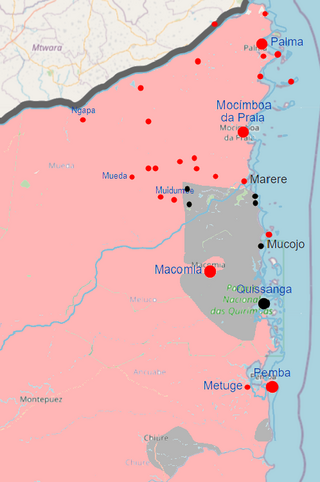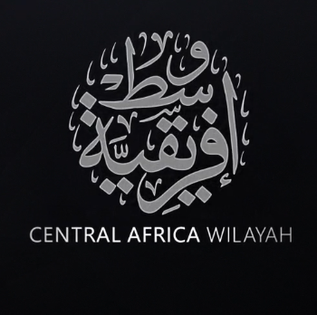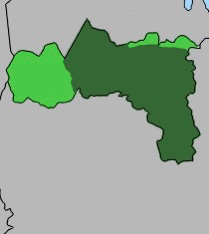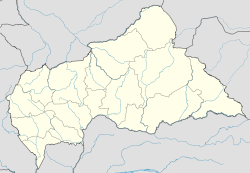
South Kivu is one of 26 provinces of the Democratic Republic of the Congo (DRC). Its capital is Bukavu.

The Ituri conflict is an ongoing conflict between the agriculturalist Lendu and pastoralist Hema ethnic groups in the Ituri region of the north-eastern Democratic Republic of the Congo (DRC). While the two groups had fought since as early as 1972, the name 'Ituri conflict' refers to the period of intense violence between 1999 and 2003. Armed conflict continues to the present day.

The Lord's Resistance Army (LRA) is a Christian extremist organization which operates in northern Uganda, South Sudan, the Central African Republic, and the Democratic Republic of the Congo. Its stated goals include establishment of multi-party democracy, ruling Uganda according to the Ten Commandments.

The People's Army for the Restoration of DemocracyAPRD was a rebel group operating in the northwest of the Central African Republic (CAR). The APRD was formed in 2006 following the 2003 coup which overthrew President Ange-Félix Patassé. It is one of several groups which fought in the 2004-2007 Central African Republic Bush War. Initially claiming it wished to overthrow current CAR President François Bozizé, the APRD was the last of the three rebel coalitions to engage in the 2007 peace process. The group participated in the 2008 Inclusive Peace Dialog, and in early 2009 entered a coalition government with Bozizé and other civil and military oppositions groups.

The Central African Republic Civil War is an ongoing civil war in the Central African Republic (CAR) involving the government, rebels from the Séléka coalition, and Anti-balaka militias.

Séléka CPSK-CPJP-UFDR was an alliance of rebel militia groups that subjugated the Central African Republic (CAR) on 24 March 2013. After its official dissolution in September 2013, the remaining rebel groups became known as Ex-Séléka. Séléka leader Michel Djotodia became the nation's president from March 2013 until his resignation in January 2014. Members of Séléka were almost all Muslim.

An internal conflict in the Central African Republic (CAR) started essentially on 13 April 2013, when the government of President Michel Djotodia officially took over. The fighting was between the government of the Central African Republic's former Séléka coalition of rebel groups, who are mainly from the Muslim minority, and the mainly Christian anti-balaka coalition. The conflict was part of the ongoing Central African Republic Civil War (2012–present). International organisations, such as the United Nations, had warned of a possible genocide. UNSC resolution 2122 authorised the African-led International Support Mission to the Central African Republic (MISCA) to be deployed to the country, and France to lead operations with additional troops sent to bolster its force in the country. Following a summit of Economic Community of Central African States (CEEAC), including the attendance of all the country's MPs, Djotodia resigned from the presidency on 10 January 2014. The National Transitional Council chose Bangui mayor Catherine Samba-Panza as interim president on 20 January 2014. A period of lawlessness prevailed during the early days of her presidency with people moving into religiously cleansed neighbourhoods as the UN warned of a genocide. Anti-Balaka attacks continued against Muslim civilians.

The Anti-balaka is an alliance of militia groups based in the Central African Republic in the early 21st century said to be composed primarily of Christians. However, some church leaders have contested the claimed exclusively Christian character of such groups. The Tony Blair Faith Foundation and journalist Andrew Katz have noted that animists also participate in Anti-balaka groups.

The insurgency in Cabo Delgado is an ongoing Islamist insurgency in Cabo Delgado Province, Mozambique, mainly fought between militant Islamists and jihadists attempting to establish an Islamic state in the region, and Mozambican security forces. Civilians have been the main targets of terrorist attacks by Islamist militants. The main insurgent faction is Ansar al-Sunna, a native extremist faction with tenuous international connections. From mid-2018, the Islamic State's Central Africa Province has allegedly become active in northern Mozambique as well, and claimed its first attack against Mozambican security forces in June 2019. In addition, bandits have exploited the rebellion to carry out raids. As of 2020, the insurgency intensified, as in the first half of 2020 there were nearly as many attacks carried out as in the whole of 2019.

The Central Africa Province is an administrative division of the Islamic State (IS), a Salafi jihadist militant group and unrecognised quasi-state. As a result of a lack of information, the foundation date and territorial extent of the Central Africa Province are difficult to gauge, while the military strength and activities of the province's affiliates are disputed. According to pro-IS media and some other sources, the Central Africa Province has a presence in the Democratic Republic of the Congo as well as Mozambique. In September 2020, during the insurgency in Cabo Delgado, IS-CAP shifted its strategy from raiding to actually occupying territory, and declared the Mozambican town of Mocímboa da Praia its capital.
The following is a timeline of events during the Central African Republic Civil War.
The jihadist insurgency in Niger or Islamist insurgency in Niger is a civil conflict between the government of Niger and Islamist groups from neighboring countries. The insurgency started in 2015 when Islamist groups from neighboring Mali began to spread their influence into Niger. Since then, the border area between Burkina Faso, Mali, and Niger has become a hotbed for extremist forces.

The Tigray Defense Forces, colloquially called the Tigray Army is a paramilitary group located in the Tigray region of Ethiopia. It was founded by former generals of the Ethiopian Military in 2020 to combat federal forces enforcing national government mandates in the Tigray region, culminating in 2020 with the outbreak of the Tigray War. The TDF has made use of guerilla tactics and strategies. Human rights groups including Amnesty International and Human Rights Watch have reported that the TDF has committed war crimes against civilians including gang rape and extrajudicial killing during their occupation of both the Afar and Amhara regions. According to the Ethiopian Ministry of Justice, TDF combatants have been found liable for upwards of 540 civilians casualties. as of 28 December 2021.
On 21 May 2019 at least 46 unarmed civilians were killed by rebels from Return, Reclamation, Rehabilitation armed group in Ouham-Pendé prefecture in the Central African Republic including at least 32 in Koundjili and Lemouna and nine in Bohong. Three generals responsible for killing were convicted of war crimes and crimes against humanity in 2022.

On 16 and 17 January 2022, at least 65 civilians were killed by Russian mercenaries from the Wagner Group who were supported by armed forces in the villages of Aïgbado and Yanga near Bria in the Central African Republic during an operation against rebels from the Coalition of Patriots for Change.
In March 2022 Russian mercenaries from Wagner Group supported by armed forces launched an offensive against armed groups in the northeastern parts of the Central African Republic (CAR) during which they killed dozens of rebels and possibly hundreds of civilians including citizens of Chad, Niger, Sudan and CAR who were working there as artisanal miners, herders and camel drivers while displacing thousands. The events have been described by multiple sources including domestic in the Central African Republic as well as in Sudan based on survivor testimony.

Tiringoulou, also spelled Tirigoulou or Tiroungoulou, is a village in the Vakaga Prefecture in the northern Central African Republic.
The Wagner Group, also known as PMC Wagner, a Russian paramilitary organization also described as a private military company (PMC), a network of mercenaries, and a de facto unit of the Russian Ministry of Defence (MoD) or Russia's military intelligence agency, the GRU, has conducted operations in the Central African Republic since late 2018.













